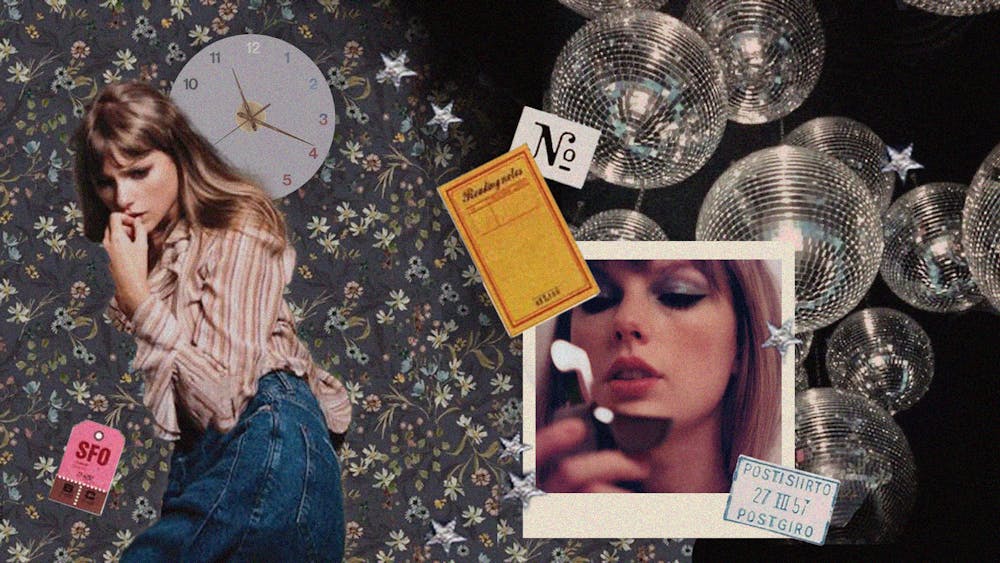“I know that I have a habit of dropping cryptic clues and easter eggs when giving you information about new music … I am here to defy that,” Taylor Swift announced through her TikTok series, “Midnights Mayhem.” Indeed, with nine prior albums and her re–recordings project, the pop veteran sure has surprised the public with her sporadic ways of teasing new music.
Aside from the “Taylor’s Versions” of Fearless, Red, and one–off releases from 1989, Swift has shied away from pop music over the past two years. 2020’s folklore and evermore saw deep dives into indie, folk music, and alternative pop. The singer–songwriter especially showcased her exemplary songwriting skills through the albums’ intricate lyrics and storytelling. Furthermore, the public marveled at the fact that both albums were surprise releases. This was starkly different from her pre–pandemic releases, which involved carefully crafted album cycles, strategically chosen singles, and a plethora of easter eggs.
Midnights, then, is a return to the traditional album cycle with some key differences. The first is Swift’s new legion of fans who anticipated her return to the songwriting found in her 2020 releases. The second is her combination of skills learned from folklore/evermore, applied to a pop background. The third is that there will be no easter eggs from Swift herself, supposedly.
The results? A sonically diverse album that fails to match the impact of either folklore or evermore. Rather, the true essence of the album lies in the deluxe edition released the same day, titled the “3am Edition.”
The album starts off with the alluring “Lavender Haze” and mystifying “Maroon.” In “Lavender Haze,” Swift addresses all the tabloid rumors between her and her current boyfriend, Joe Alwyn, with throbbing bass and euphoric falsetto chorus. “Maroon” continues this energy, with lyrics like “How the hell did we lose sight of us again?” combined with a blaring synth and dreamy soundscape. These color–coordinated songs sound as if she took her reputation and Lover songs and updated them with the more candid lyricism of folklore, offering an impactful start.
We hit a slight road–block with the lead single, “Anti–Hero,” where Swift casts herself as “the problem” and an anti–hero people who may “be exhausting always rooting for.” We’ve seen Swift shake off the haters before in “Shake It Off” and go full vengeance in “Look What You Made Me Do.” The personal reflection found in “Anti–Hero” completes the trilogy of emotions Swift went through regarding her public controversies. Yet, some of the lyricism trips over itself: “Did you hear my covert narcissism / I disguise as altruism / like some kind of congressman” is a clunky metaphor that takes a few extra minutes to understand. Likewise, the bridge with the dream where her “daughter–in–law kills [her] for the money” seems a bit on the nose for a song meant for the radio.
“Anti–Hero” is just one instance of how Swift’s songwriting may be trying too hard to sound meaningful. Aside from the Scooter Braun references, “Vigilante Shit” feels like she’s cursing for the sake of cursing when she sings “shit” in back–to–back lyrics: “I’m on my vigilante shit again / I don’t start shit, but I can tell you how it ends.” Instead, the noirish atmosphere and bubbling beats do most of the heavy lifting in portraying her point.
“Karma,” too, tries to become an anthem for revenge and karmic justice. Swift personifies karma as her boyfriend. She embraces being petty with her haters, even just for a second. Yet, lines like “karma is a cat / purring in my lap ‘cause it loves me / flexing like a goddamn acrobat” are almost comedic in that they don’t make much sense.
There’s nothing fundamentally wrong with Midnights. In fact, one could say Swift sounds more comfortable than she has ever been, oozing charisma and a straightforward cadence. Attempting to pair meaningful lyrics with a pop beat, however, doesn’t always work well, and sometimes that’s okay. “Anti–Hero” is still exhilarating to sing along to, and “Vigilante Shit” and “Karma” can still make listeners feel badass.
Had she just stuck with the original thirteen tracks, specifically chosen as thirteen is her lucky number, this would’ve been the end of the story. At 3 a.m. of the same day, however, Swift released the deluxe version, titled the “3am Edition.” Interestingly enough, while the original thirteen is mainly manned by Swift and Jack Antonoff, she brings back Aaron Dessner for some of the deluxe tracks.
The Swift–Dessner duo goes all in with the tracks they worked on together. “The Great War” analogizes a tumultuous relationship to a war, and Swift’s lyricism is at its peak here: “You drew up some good faith treaties / I drew curtains closed / drank my poison all alone” is a perfect contrast of personalities, and the delicate instrumentation matches the somber mood.
The best track of the project, funnily enough, is the deluxe track “Would’ve, Could’ve, Should’ve.” The song is the perfect combination of Swift’s strong points, with poignant and personal lyrics, strong imagery of religion and innocence, and a driving guitar in the background. You could feel when Swift sing–shouts “I regret you all the time” in your bones, as the guitars drop out at the end. The deluxe tracks, indeed, give the listeners what would’ve, could’ve, and maybe even should’ve made the final thirteen cuts in the original.
While Midnights doesn’t quite match Swift’s songwriting peak, one can admire her efforts in challenging herself to create something unfamiliar to herself. Maybe “none of [this] was accidental,” as Swift sings in “Mastermind.” Through this album, the blonde songstress hopes to subvert the expectations of the public, and more importantly, Taylor Swift. Midnights is a self–realization project; we’re just here along for the ride.







